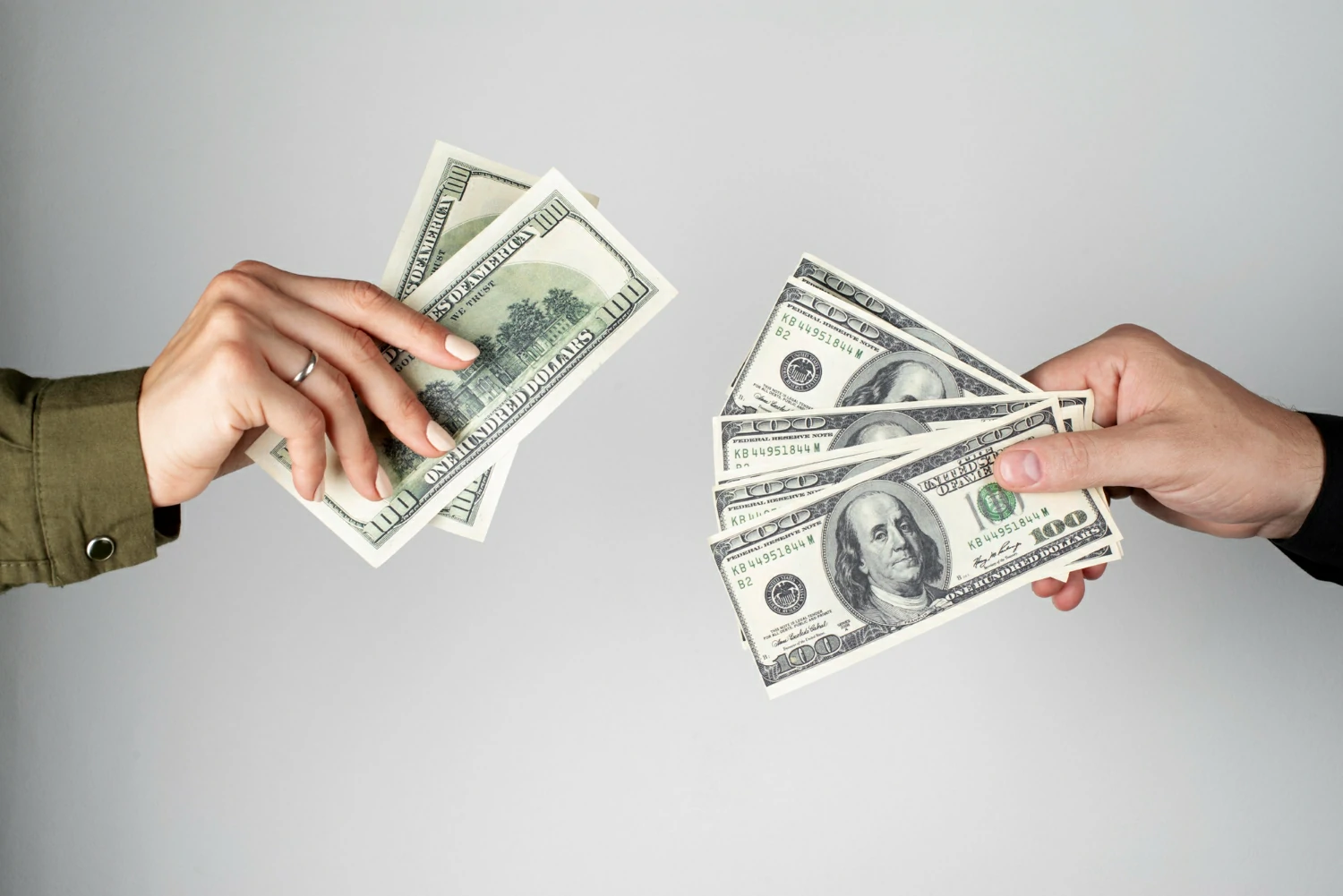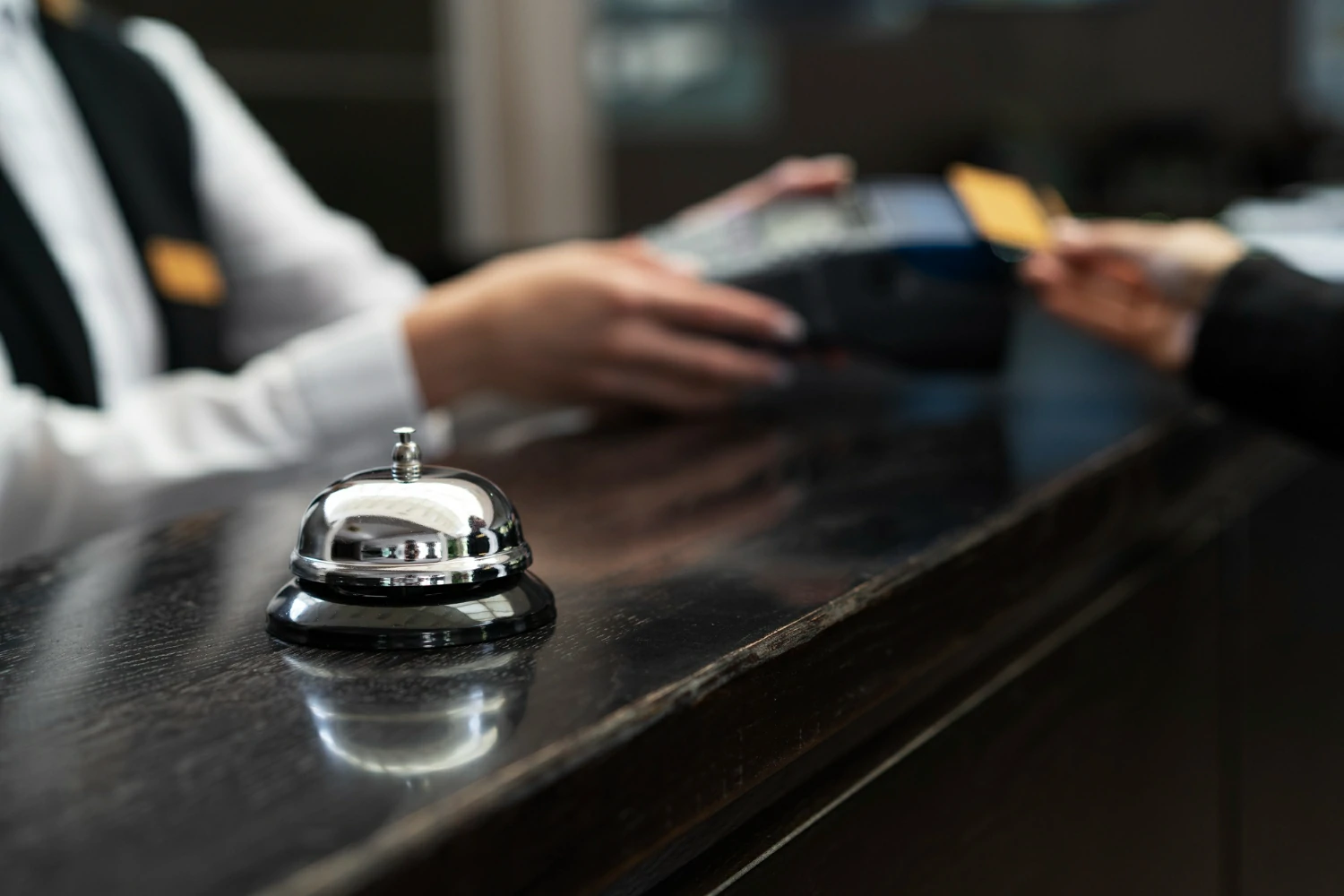What are NYC hotel taxes and fees? Answer is – New York City hotels add several taxes and fees on top of your advertised room rate. These charges significantly increase the overall cost of your stay. Key taxes and fees include:
- New York State Sales Tax: 8.875%
- New York City Sales Tax: 5.875%
- NYC Hotel Room Occupancy Tax: $2.00 per room, per night
- Javits Center Fee: $1.50 per room, per night
- Resort Fees/Destination Fees (sometimes): These vary by hotel.
Summary
- NYC hotels have complex tax structures that add to the cost of your stay.
- The primary taxes include state sales tax, city sales tax, room occupancy tax, and the Javits Center fee.
- Some hotels charge additional “resort fees” or “destination fees”.
- Understanding these charges helps with budgeting and avoids surprises on the final bill.
NYC Hotel Taxes and Fees

You’ve found the perfect New York City hotel – great location, stylish rooms, maybe even a rooftop pool. The price seems reasonable, so you book it, eager for your Big Apple adventure. But when the final bill arrives, there’s a nasty surprise – a hefty chunk of added taxes and fees that push the cost far beyond your initial expectation.
Understanding the complex world of NYC hotel taxes and fees is crucial for any savvy traveler. These additional charges can significantly inflate the advertised room rate, making a seemingly affordable stay much pricier. By budgeting accurately and knowing what to expect, you’ll avoid financial headaches and ensure your hard-earned travel dollars go further.
The Added Cost of NYC Hotel Taxes and Fees
New York City boasts some of the highest hotel taxes in the United States. It’s a multi-layered system, with a mix of state, city, and sometimes even additional hotel-specific charges.
This can lead to confusion and frustration for visitors who aren’t prepared. Imagine the disappointment when your dream hotel suddenly costs 15% or more than you originally planned!
The Importance of Budgeting
New York City isn’t known for being a budget destination, and hidden costs like hotel taxes can seriously derail your travel funds. To manage your finances effectively, it’s vital to:
Factor in taxes during hotel research: Don’t just rely on the advertised nightly rate. Search for information on the hotel’s specific fees, or utilize booking platforms that clearly display additional costs.
Create a realistic travel budget: Once you understand the true costs involved, allocate a sufficient amount for your accommodations. This protects you from unexpected charges that could eat into your funds for dining, attractions, and the quintessential NYC shopping spree.
Sarah Wilson
“Many visitors to New York City are shocked by the final cost of their hotel stay,” says Sarah Wilson, a travel advisor specializing in NYC accommodations. “By understanding the tax structure and potential fees beforehand, travelers can make informed choices and avoid unpleasant surprises on their bill.”
NYC Hotel Taxes and Fees

The web of taxes and fees surrounding NYC hotel stays can feel overwhelming. Let’s break down the key components to empower you with the knowledge necessary for informed budgeting.
1. New York State Sales Tax
Percentage of tax: Currently stands at 8.875%. This tax applies to various goods and services across the state, including hotel accommodations.
How it is calculated: The state sales tax is calculated as a percentage of your nightly room rate before additional fees are added. For example, if your room costs $200 per night, the New York State sales tax would be $17.75 (200 x 0.08875).
2. New York City Sales Tax
Percentage of tax: New York City adds its own sales tax of 5.875% on top of the state sales tax.
How it is calculated: Similar to the state tax, the city sales tax is a percentage of your base room rate. Using our previous example, the New York City sales tax on a $200 room would amount to $11.75 (200 x 0.05875).
3. NYC Hotel Room Occupancy Tax
Fixed rate per room, per night: This is a flat rate of $2.00 applied to each occupied room per night.
Exemptions (if any): There are limited exemptions to this tax. Permanent residents (those staying over 90 consecutive days) or individuals paying less than $2 per day for their room may be exempt.
4. Javits Center Fee
Fixed rate per room, per night: This daily fee of $1.50 is imposed on each occupied hotel room within New York City.
Purpose of the fee: The Javits Center fee, named after the Jacob K. Javits Convention Center, supports the operation and expansion of this major NYC convention facility.
Example
Let’s imagine you book a hotel room in Manhattan for $300 per night. Here’s a simplified estimate of how NYC taxes and fees might impact your final bill:
- Base room rate: $300
- New York State sales tax (8.875%): $26.63
- New York City sales tax (5.875%): $17.63
- NYC Hotel Room Occupancy Tax: $2.00
- Javits Center Fee: $1.50
Estimated Total Cost per Night: $347.76
Mark Jeffries Expert Opinion
“NYC hotel taxes make a significant impact, particularly for multi-night stays,” notes Mark Jeffries, a financial consultant specializing in travel budgeting. “To avoid unwelcome surprises, factor a minimum of 15% in additional costs on top of your advertised room rate.”
Additional Fees

Beyond the mandatory taxes outlined earlier, some New York City hotels, especially those catering to the luxury market, impose additional charges known as resort fees or destination fees. These can create a lot of frustration for travelers, so understanding what they are and how they can impact your stay is essential.
1. Resort Fees/Destination Fees
Explanation of these fees
Resort fees or destination fees are mandatory daily charges added to your room rate. Hotels often justify them by claiming they cover amenities or services like:
- Wi-Fi access
- Pool and gym use
- Beach towel rentals
- Bottled water
- Local phone calls
Variation between hotels
There’s significant inconsistency in what’s included and how much hotels charge for resort fees.
Some fees are under $20 per night, while the most luxurious hotels might add upwards of $50 or even more to your nightly cost.
Importantly, these fees are charged whether or not you actually use the offered amenities.
Controversy surrounding these fees
Resort fees have become a hot-button issue within the travel industry.
Critics argue they are misleading and deceptive, creating the illusion of a lower nightly room rate while disguising the true cost of the accommodation.
Consumer advocacy groups have been pushing for greater transparency in hotel pricing.
Janet Alvarez Expert Opinion
“Resort fees are a deceptive practice that harms consumers,” states Janet Alvarez, Executive Director of the New York Consumer Protection Coalition. “They create an uneven playing field for price comparison and lack transparency, harming the overall travel experience.”
What This Means for Your Hotel Bill

Understanding theoretical percentages is one thing, but it’s the final, inflated bill that can really cause a shock. Let’s look at some examples to illustrate just how those taxes and fees stack up.
1. Example Scenarios
Scenario 1: Budget-Conscious Stay
You find a seemingly affordable hotel room advertised at $150 per night in Midtown Manhattan. Excited about the deal, you imagine having more to spend on Broadway shows and iconic NYC eats.
Let’s calculate the estimated true cost with taxes and fees:
NY State Sales Tax (8.875%): $13.31
NY City Sales Tax (5.875%): $8.81
Room Occupancy Tax: $2.00
Javits Center Fee: $1.50
Estimated total: $175.62 per night
That’s an increase of over 17%! Your “budget” hotel costs almost as much as a more moderately priced room might have before taxes.
Scenario 2: Luxury Splurge
You decide to treat yourself to a swanky hotel with a rooftop pool and stellar reviews. The advertised rate is $450 per night. However, this hotel also has a $35 per night resort fee.
Let’s factor in all the extras:
NY State Sales Tax (8.875%): $39.94
NY City Sales Tax (5.875%): $26.44
Room Occupancy Tax: $2.00
Javits Center Fee: $1.50
Resort Fee: $35
Estimated Total: $554.88 per night
The final price is over 23% more than the original rate. Those extra fees could easily cover a memorable multi-course dinner or tickets to a top attraction.
2. Importance of Factoring in Costs When Booking
These examples clearly demonstrate that failing to account for taxes and fees creates a false impression of a hotel’s affordability. Here’s why being proactive is key:
Accurate Budgeting: Don’t fall into the trap of getting excited about an advertised nightly rate only to experience sticker shock later. Realistic projections will protect your travel funds from unpleasant surprises.
Informed Decision-Making: When you know the true costs, you can compare hotels on an even playing field. This empowers you to choose the option that actually offers the best value considering your overall budget.
Avoid Overspending: Unexpectedly high hotel costs can force you to cut back on the fun parts of your trip – dining experiences, attractions, and even some quintessential NYC shopping. This can negatively impact your overall experience.
Lisa Thompson Expert Opinion
“Travelers should view hotels as an all-inclusive cost, similar to booking a flight or a cruise,” emphasizes Lisa Thompson, a travel agent specializing in NYC vacations. “Budgeting for the real price of your stay sets you up for financial success and a stress-free trip.”
Tips for Managing Costs

1. Researching hotels and their fee structures before booking
The Importance of the Fine Print: Don’t be seduced by a low nightly rate alone. Invest some time in investigating individual hotel policies regarding fees and taxes.
Where to Find the Info: A hotel’s official website should clearly outline its fee structure. However, don’t hesitate to call the hotel directly and ask specific questions. Reputable third-party booking platforms Booking.com, Hotels.com, Kayak.com also often display taxes and fees prominently, aiding in comparison.
Focus on the TOTAL Cost: Train yourself to always look at the final estimated cost per night with all additions included. This allows for a true apples-to-apples comparison.
2. Comparing prices across booking platforms, including hotel websites
Don’t Assume One Source is Best: Prices and even the inclusion of taxes and fees can vary between booking platforms. Sometimes, booking directly with the hotel offers the best deal, especially if they have member loyalty programs. Other times, third-party sites might offer special promotions or bundled packages.
Time is Your Friend: If your travel dates are flexible, take the time to compare options across different websites and monitor for fluctuations. Remember to factor in any booking platform fees against potential savings.
3. Considering staying outside of Manhattan for potentially lower taxes
Expanding Your Horizons While the allure of staying in the heart of Manhattan is strong, venturing to outer boroughs or nearby areas in New Jersey could offer significant savings on hotel costs.
Reduced Fees: Taxes can be slightly lower in some neighborhoods outside central Manhattan. Additionally, hotels might be generally more affordable.
Weighing Trade-Offs: It’s important to factor in the cost and time of transportation into Manhattan if you choose this option. Some areas are well-connected by the subway system, making this strategy viable.
However, if you plan on several daily trips back to your hotel, the added transport could eat away at both your time and savings.
Conclusion
While NYC hotel taxes and fees can add an unwelcome surcharge to your stay, don’t let them derail your Big Apple dreams. By understanding the tax system, proactively researching hotels, and employing cost-managing strategies, you can ensure these additions don’t overshadow your NYC adventure.
Here’s a recap of the key takeaways:
- You’ll encounter state taxes, city taxes, and sometimes even hotel-specific fees.
- Expect to pay around 15% or more on top of your base room rate.
- Always factor in taxes and fees when budgeting to avoid financial surprises.
- Consider alternatives that can lower your hotel expenses, like staying in nearby areas, exploring vacation rentals, or traveling during off-peak seasons.
FAQs
Q: Are there any exemptions from NYC hotel taxes?
Exemptions are limited. Permanent residents staying in a hotel for longer than 90 consecutive days, or those paying less than $2 per night for a room may qualify.
Q: Can I dispute hotel taxes and fees after I’ve already booked?
Unfortunately, mandatory taxes are unlikely to be waived. However, if you believe a hotel has incorrectly charged you additional fees, it’s always worth contacting the hotel management or the booking platform used to seek clarification and potentially request a correction.
Q: Are resort fees always mandatory?
Yes, if a hotel imposes a resort fee, you will be required to pay it, even if you don’t utilize the associated amenities. However, choosing hotels that don’t use this fee structure eliminates this added expense.
Q: Does the time of year I travel impact the amount of taxes I’ll pay?
No, the tax rates themselves stay consistent throughout the year. However, since hotel room rates fluctuate based on demand, higher base room rates during peak seasons would naturally result in higher tax amounts as well.
Q: Are tips for hotel staff subject to taxes?
No, tips and gratuities given directly to hotel staff are not typically subject to additional taxes.







